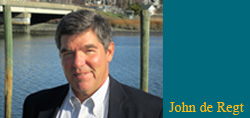Services
Executive Coaching
Working with high-potential executives in both the corporate and not-for-profit sectors, I help them to improve in areas such as executive presence, leadership, delegation, involvement and customer relations. An important part of this process is assisting individuals in their interactions with superiors, peers and direct reports.
Executive coaching engagements often become sounding board engagements, as the professional life of a senior executive can be quite isolated, ironically while dealing with many individuals every day. My sounding board service is an opportunity for a senior executive to have private conversations about any business matter, without an agenda. It can also be an opportunity for a senior executive to seek and receive honest feedback.
Management Team Due Diligence Assessment
Due diligence assessment of top executives is increasingly a key aspect of the acquisition process, requested by both corporate buyers and private equity firms. This process is generally structured to assess individual executives against characteristics specified by the prospective buyer, and therefore each assessment is custom tailored for the acquirer.
Initially, I meet with the top management of the buyer to develop a set of characteristics, both desired and those to be avoided, to use in the assessment of the members of the management team of the proposed acquisition. Key questions to be discussed include:
• Which characteristics have produced successful acquisitions in the past?
• How effective is the management team as a group?
• Given the desired strategy for this acquisition, what characteristics are especially important?
• Which characteristics are important for a successful cultural integration?
• What traits and behaviors are to be avoided?
Once there is a clear understanding of characteristics to be assessed, various techniques are considered. I interview each executive in person, using a pre-planned interview guide to probe areas of interest. I generally employ well-understood tools, such as the Hogan Personality Inventories, and emotional assessment tools, such as EQi 2.0, to verify the interview findings and to provide additional data. Background checks are often done. The assessment is completed and reported in an expedited manner to meet the constraints of the period of exclusivity.
Each assessment is tailored to meet the exact needs of the acquiring organization and is often useful long after the acquisition has occurred.
Retirement Coaching
Retirement from a satisfying career is both the ending of a powerful, achievement-filled period of life and hopefully the dawning of a newly-rewarding phase, filled with challenges, satisfaction and happiness. Retirement is a significant life transition, unlike any life transition before. The central theme of retirement coaching is helping executives understand how retirement affects them and how to embrace this transition.
My focus is helping clients make healthy, intentional transitions. Some possible frameworks to be considered are AARP’s Life Reimagined model, Hudson’s Cycle of Renewal, the mind/body health and wellness connection, and others. I tailor a choice of books for each client.
There is value in beginning a retirement coaching engagement six to twelve months before the anticipated retirement date. Topics discussed include ensuring capable succession, hand-off of responsibilities, and the nature of the post-retirement relationship between the executive and the organization.
As the moment of departure arrives, the conversation evolves to focus on how the executive can make use of the time and mental bandwidth which become available after full-time work ends, how to be intentional about mental, physical and emotional health, and the notion of learning something new through a rigorous course of study. The engagement continues as long we both feel the time is worthwhile, perhaps for nine to twelve months.
As with executive coaching, there is complete flexibility, and each engagement is different.
